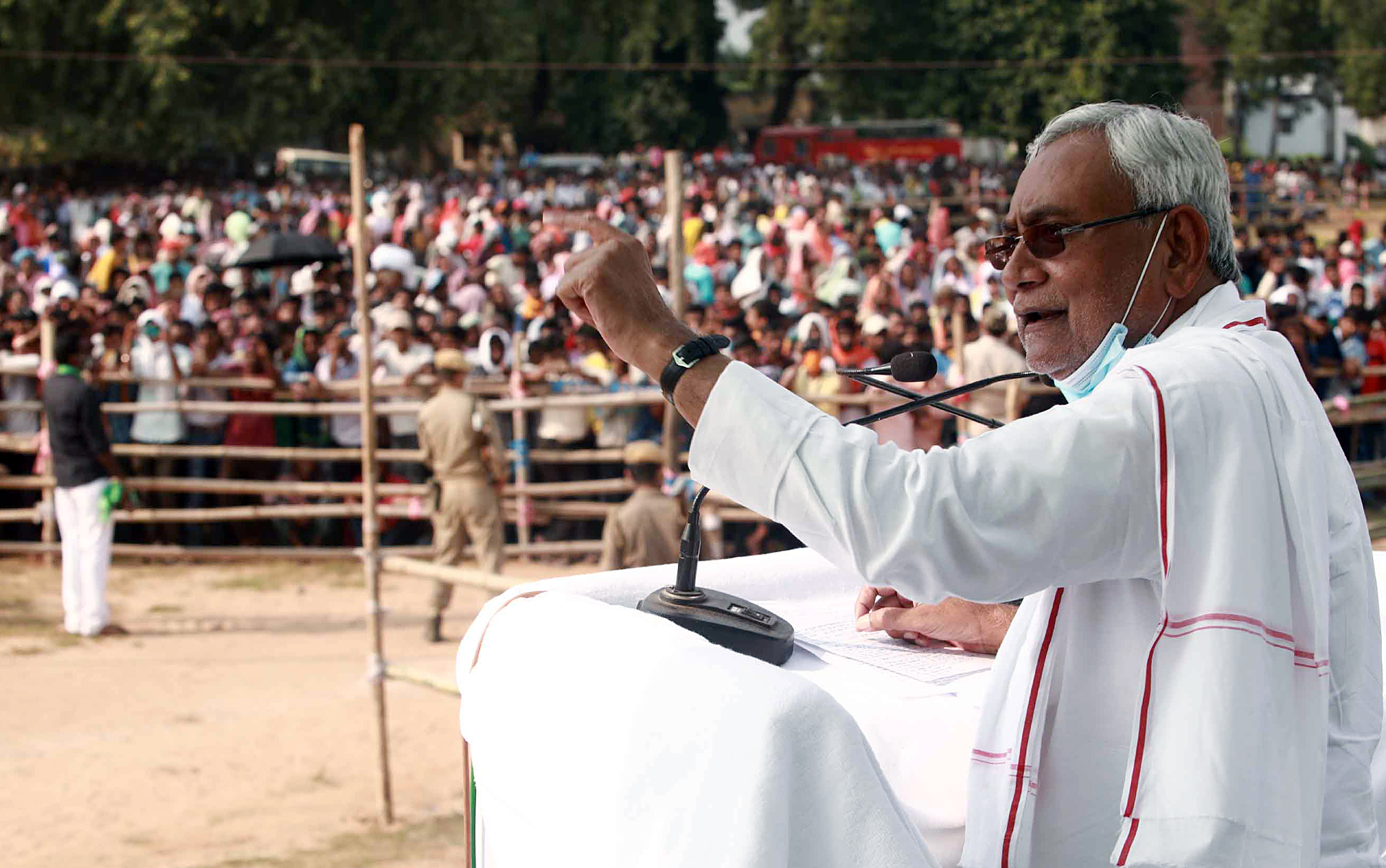Strange as it may sound, the ongoing Bihar Assembly elections could well turn out to be a saga of deceit, deception and unforeseen surprises. The polls, perhaps, could also draw the curtains over a long era, where Socialists, influenced by Dr Ram Manohar Lohia, Jai Prakash Narayan, Narendra Dev and Karpoori Thakur, played a major role in determining the political fortunes of pivotal players, particularly in Uttar Pradesh and Bihar. At a time when the right-wing parties have managed to acquire the upper hand, the shift in the ideological based combat is fast losing its relevance.
The battle of Bihar’s complexity increases by the day. Chief Minister Nitish Kumar, who is seeking yet another term in office, could be in for a rude jolt. Ground reports suggest that there is an anti-Nitish atmosphere prevalent in the state, and thereupon his principal ally, the BJP, could be the beneficiary, in case it manages to emerge as the single largest party. The Janata Dal (United), which is contesting on 122 odd seats, is facing a challenge from within its own alliance. The Lok Jan Shakti Party has already parted ways with the official alliance, yet for some odd reason is supportive of the BJP, while opposing Nitish Kumar.
For the record, senior BJP leaders have made it amply clear that the LJP can be a part of the NDA only if it supports the alliance in Bihar, but simultaneously there is a parallel plot that is running. Several top BJP and RSS inclined leaders have entered the fray on LJP ticket, thereby arousing suspicion on whether the Sangh Parivar was plotting to surreptitiously displace Nitish. On his part, Chirag Paswan, who lost his father and former Union Minister, Ram Bilas Paswan, on 8 October, is publicly declaring his allegiance to the Prime Minister, describing himself as his “Hanuman” in “whose heart Narendra Modi resides”.
The million-dollar question is whether the Junior Paswan, a comparatively green-horn in politics, is doing this on his own behest or has been nudged to take an ambiguous stand by someone in the BJP. It is most unlikely that Chirag has the capacity to rock Nitish’s boat, though the latter and his late father, at one time, were said to be extremely close. This was the period when Lalu Prasad Yadav, Nitish and Paswan were on the same side, pursuing politics inspired by the great socialist leaders.
Things have undergone a drastically dramatic change; Lalu is watching the game from the sidelines, as his family fights amongst itself, hampering the chances of his son, Tejashwi, who is regarded as his political heir. To his understanding, Tejashwi, in a seat sharing agreement, has given sufficiently more seats to the Congress (75) than it is capable of contesting. In fact, the Congress does not have as many winnable nominees in the state, which more than 30 years ago had ousted it from power. Thus, the political meaning of this magnanimity is that the BJP would have a clear advantage in the seats that the Congress is contending for. This is the sole reason why BJP supporters believe that the saffron party would be the single largest entity post-election and shall call the shots.
The JD(U) position has further been compromised since the LJP candidates in many places would cut into the votes, thereby providing an opportunity to the RJD nominees to win those seats. Political analysts from Bihar are of the view that Nitish was also being targeted by the pro-BJP media, that several years ago, on an earlier occasion, had contributed in pulling down Lalu Prasad Yadav from his pedestal.
The charge against the JD(U) is that despite for many years being in the driver’s seat, it has done very little for the development of the state. During the migrants’ exodus, following the Covid-19 lockdown, the Bihar government was found wanting, and was unable to assist those who had to rush back home with no employment and money. Although the BJP should have equally faced the ramifications, yet it has, strangely, managed to keep itself unscathed from the crisis that had occurred. This is the general perception, and the truth would only unravel after the election outcome. The polls, might as well, hold relevant revelations for the BJP.
As things stand today, BJP supporters claim that there was a huge pro-Modi wave in the state, and the party would eventually stake claim to form the government, provided the JD(U) collapses. In this context, the name of Union Minister Ravi Shankar Prasad has been doing the rounds, though people close to him deny that he would be entering state politics.
In 2015, the BJP was poised to form the government but certain unwarranted statements regarding reservations from senior RSS functionaries changed the political narrative, thus assisting the JD(U) and RJD-combine to make it to power. Politics often makes strange bedfellows, and it increasingly is becoming evident that the Bihar puzzle would be solved only in the post-poll scenario.
Ideologically speaking, the socialists have several things in common; in practice, however, they act rather most unpredictably. It is said, that when they are not duelling with others, they are feuding amongst themselves. They can only remain united with each other for three years, and yet have to compulsively reunite two years later. What needs to be decoded is whether the current election would bring to an end the socialist era of Indian politics. Between us.

